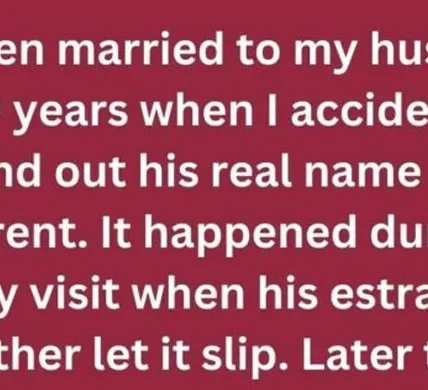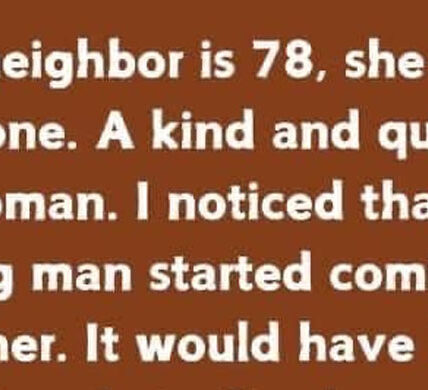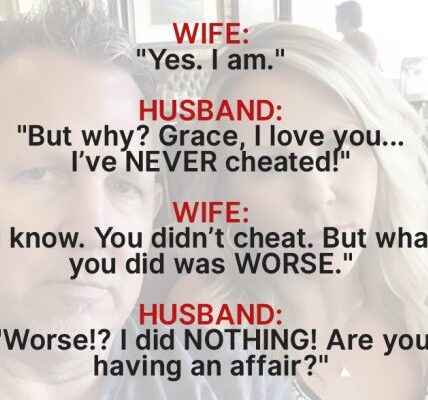People know me as the fireman down the block. The guy who shovels elderly neighbors’ sidewalks in winter and lets kids climb all over the fire truck at the community fair. But no one ever sees the mess behind my front door.
Except maybe Luna.
She’s been with me since I found her curled up behind the station dumpster during a rainstorm, ribs showing, whole body shaking. They said she was a pit mix, and “probably trouble.” But all she’s ever done is love too hard.
We passed the training. She got her license as an emotional support dog after my second back injury and that fire that still shows up in my dreams. Luna was the only reason I didn’t drink myself into the ground.
Then one neighbor made a call.
Said Luna looked “aggressive” in the yard. Said she barked when his kid got too close to the fence. That was all it took. A report. A knock on my door. An order to remove her from the property within 72 hours or face penalties.
I showed them her papers. I begged them to understand. But it didn’t matter. Wrong zip code. Wrong breed.
I took this photo the day before they came.
And I made a promise right after.
The morning of the deadline, I woke up early, just like every other day. Except this time, instead of grabbing my gear for work, I sat on the porch steps with Luna by my side. Her big brown eyes looked up at me, trusting as always. How could anyone look at her and see anything but kindness?
I had called every rescue group within a hundred miles, but no one had room. My buddy Calvin—a fellow firefighter—offered to take her temporarily, but he lived in an apartment complex with strict pet policies. It felt like every door was closing.
As I scratched behind her ears, something inside me snapped. This wasn’t just about losing Luna; it was about giving up without a fight. Sure, I’d followed rules my whole life—wore the uniform, saved people—but now those same rules were being used against me. And I couldn’t let that stand.
So I decided to go rogue.
Calvin helped me build a plan. We loaded Luna into my truck under the cover of darkness, heading toward a cabin owned by his cousin deep in the woods. No neighbors, no complaints, just peace and quiet. At least for a little while.
But halfway there, disaster struck. A deer darted across the road, and though I swerved to avoid it, we ended up fishtailing off the shoulder. The truck stopped short of any trees, but the headlights flickered and died. Great. Now what?
That’s when karma stepped in—or maybe fate. As I stood cursing the universe, a car pulled over. Not just any car, but an old van covered in bumper stickers reading things like “Adopt Don’t Shop” and “Pit Bulls Are Family Too.”
Out stepped Marla, a woman probably twice my age with wild gray hair tied back in a scarf. She introduced herself as a volunteer for a local sanctuary for misunderstood breeds. When she heard our story, she didn’t hesitate. “You bring that sweet girl here,” she said, nodding toward Luna. “We’ll figure something out.”
Marla led us to her sanctuary—an actual haven tucked away in the hills. Dogs of all shapes and sizes roamed freely, tails wagging, clearly happy. For the first time in days, I felt hope.
Still, leaving Luna there crushed me. Even knowing she’d be safe, walking away felt wrong. As I hugged her goodbye, promising to visit whenever I could, Marla put a hand on my shoulder. “You’ve already done so much for her,” she said softly. “Now let us help you both.”
Weeks passed. I visited Luna every chance I got, bringing treats and playing fetch until my arm ached. Each trip reminded me how much I missed having her at home—and how unfair the system felt. Why should good dogs suffer because of bad stereotypes?
One evening, Marla invited me to join her at a town hall meeting about proposed changes to local animal ordinances. Reluctantly, I agreed. Sitting in that crowded room, listening to heated debates about breed bans and leash laws, I realized something: silence wouldn’t fix anything. Stories needed to be told. Faces needed to be seen.
So I raised my hand and spoke. I shared Luna’s story—the rainy night I found her, the bond we built, the injustice of her forced removal. People listened. Some even teared up. Afterwards, several attendees approached me, thanking me for speaking out. One older man handed me his card, introducing himself as a city council member interested in revisiting the breed-specific legislation.
Change doesn’t happen overnight, but momentum began building. Articles appeared in the paper highlighting cases like Luna’s. Local businesses started hosting fundraisers for the sanctuary. Even some of my skeptical coworkers admitted they’d never met a pit bull quite like her.
Meanwhile, Luna thrived at the sanctuary. Watching her run free among the other dogs filled me with pride—and guilt. She deserved better than temporary fixes. She deserved justice.
Then came the twist none of us saw coming.
During one fundraising event, a young family approached Marla, asking about adopting a dog. Their son, around ten years old, immediately gravitated toward Luna. His parents hesitated, citing concerns about her size and strength. But as they watched their boy laugh while Luna gently licked his face, their resistance melted.
When Marla asked if I approved, I froze. Letting Luna go again felt impossible. Yet seeing her interact with that child stirred something deep inside me. Maybe this was her purpose—to change hearts and minds, one family at a time.
After hours of soul-searching, I gave my blessing. Saying goodbye hurt more than I expected, but watching her leave with her new family brought unexpected comfort. Knowing she’d inspire others, breaking down barriers one wagging tail at a time, made the sacrifice worth it.
Months later, I received a letter. Inside was a photo of Luna lounging on a couch, surrounded by smiling faces. The accompanying note read: “Thank you for trusting us with your girl. Because of Luna, we’ve learned that love has no breed.”
Reading those words hit me harder than any blaze ever could. In saving Luna, I thought I’d lost everything. Instead, I gained perspective. Life isn’t always fair, but sometimes, doing the right thing means letting go—even when it hurts.
Since then, I’ve become an advocate for animals facing similar challenges. Together with Marla and others, we’re working to rewrite outdated laws and educate communities about responsible pet ownership. Progress is slow, but each small victory reminds me why it matters.
Looking back, I realize Luna taught me more than I ever taught her. About resilience. About forgiveness. About finding light in the darkest moments.
If you’ve ever loved and lost a furry friend—or fought for something bigger than yourself—you know exactly what I mean. Share this story if it resonates with you. Let’s keep spreading compassion and challenging stereotypes. After all, every dog deserves a second chance—and so do we.
Like and comment below to share your thoughts. Together, we can make a difference.



